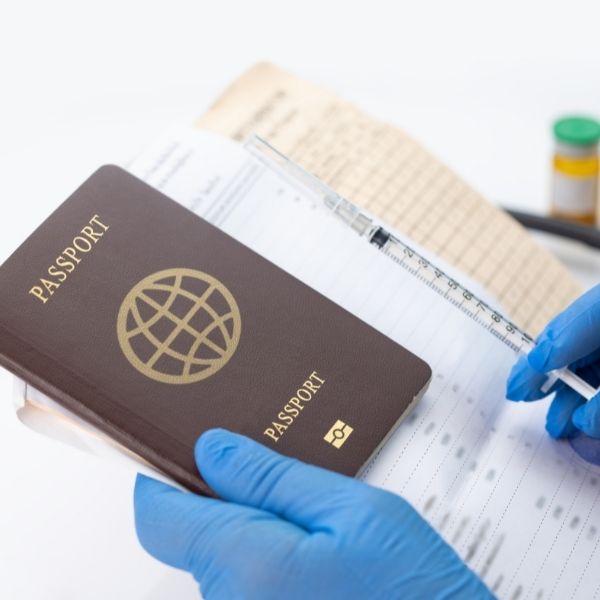
General Travel Vaccination Advice for New Zealand
The decision to travel to New Zealand is your decision and you are in charge of getting all the vaccination you are required to have prior to your trip to New Zealand.
The content on this web page is given information only and pulled together from travel advice and warnings for New Zealand by governments worldwide to their citizens.
While we make every effort to give you correct travel advice information, it is provided on an “as is” basis without warranty of any kind, expressed or implied.
This owners of this website does not assume responsibility and will not be liable for any damages in connection to the information provided.
General Vaccination Needed for New Zealand
Do I need to vaccination when travelling to New Zealand? Anybody choosing to go on vacation or business trip to New Zealand require to consult a health care expert or visit a travel health clinic ideally 6 weeks prior to you travel regarding the folloing:
Routine Vaccines – Make sure that your regular vaccines such as vaccination for measles-mumps-rubella (MMR), diphtheria, tetanus, pertussis, polio, varicella (chickenpox), influenza and others are up-to-date despite your travel to New Zealand.
Additionally, you might be at risk for these vaccine-preventable diseases when taking a trip in New Zealand. Speak to your travel health expert about which of these vaccines are right for you:
- Covid 19 is a transmittable viral disease. It can spread from person to person by direct contact as well as through droplets in the air.
- Hepatitis B A disease of the liver spread via blood or various other bodily fluids. Tourists that might be exposed (e.g., through sexual contact, clinical therapy, sharing needles, tattooing, acupuncture or job-related exposure) must get immunized.
- Influenza (Flu) Seasonal influenza takes place worldwide is caused by an infection spread from person to person when they cough or sneeze or by touching objects as well as surface areas that have been contaminated with the virus.
- Measles is a very contagious viral disease. It can spread out rapidly from person to person by direct contact and also through droplets in the air.
- Tick-borne encephalitis is present in some locations of New Zealand and it is a viral disease that impacts the central nervous system (brain and spinal cord). It is spread to human beings by the bite of infected ticks or when you take in unpasteurized milk products.
Is it safe to take a trip to an area with animals in New Zealand?
Visitors to New Zealand are generally cautioned to stay clear of contact with animals, including pets, monkeys, snakes, rodents, birds, and bats. Some infections discovered in some areas of New Zealand, like bird influenza and rabies, can be shared among humans and also animals.
Whilst taking a trip New Zealand, is it safer to drink water in New Zealand?
Tourists to any location in the world including New Zealand can pick up travellers’ diarrhea from consuming contaminated water or food.
As food and water can become carries of diseases like cholera, hepatitis A, schistosomiasis and also typhoid, make sure you practice safe food and water precautions while taking a trip in any part of the globe. Keep in mind: Boil it, cook it, peel it, or leave it!
Travel insurance policy for New Zealand
Health cover is one of the major reasons visitors get travel insurance policy. It will not avoid you getting sick or injured, though it can stop you suffering financially. Medical aid overseas can be very expensive.
You need to pay for all treatment you receive overseas. You can not expect to get free or subsidised care through your New Zealand’s public health system, like you would in your home country.
If you can’t pay, local authorities can apprehend you. The government from your home country can not pay you health care bill for you, loan you cash or get you out of jail.
You require travel insurance policy for travelling to New Zealand. You also need to see to it you choose a plan that is right for you.
Check out the small print of your travel insurance policy.
Declare all pre-existing conditions to your travel insurance company upfront. If you do not, you might void your travel insurance policy.
Tell your travel insurer the activities you plan to do, before you go. Many common activities like snowboarding are left out in standard policies. You might need to pay additional.
Check if you have free credit card travel insurance. Some cards include travel insurance coverage cover. Nevertheless, they frequently have different conditions than paid plans. Understand the differences.
If you’re going to New Zealand from a country that has a reciprocatory healthcare arrangement, you still require travel medical insurance. Agreements are restricted in what they’ll will cover.
If you have a terminal illness, you may not have the ability to obtain basic travel insurance policy. Nevertheless you might have the ability to get a specialised insurance company that covers you for health, mishaps or property problems unconnected to your ailment. Talk with your insurer to learn.
Discover more about obtaining global travel insurance coverage for New Zealand before you go.
